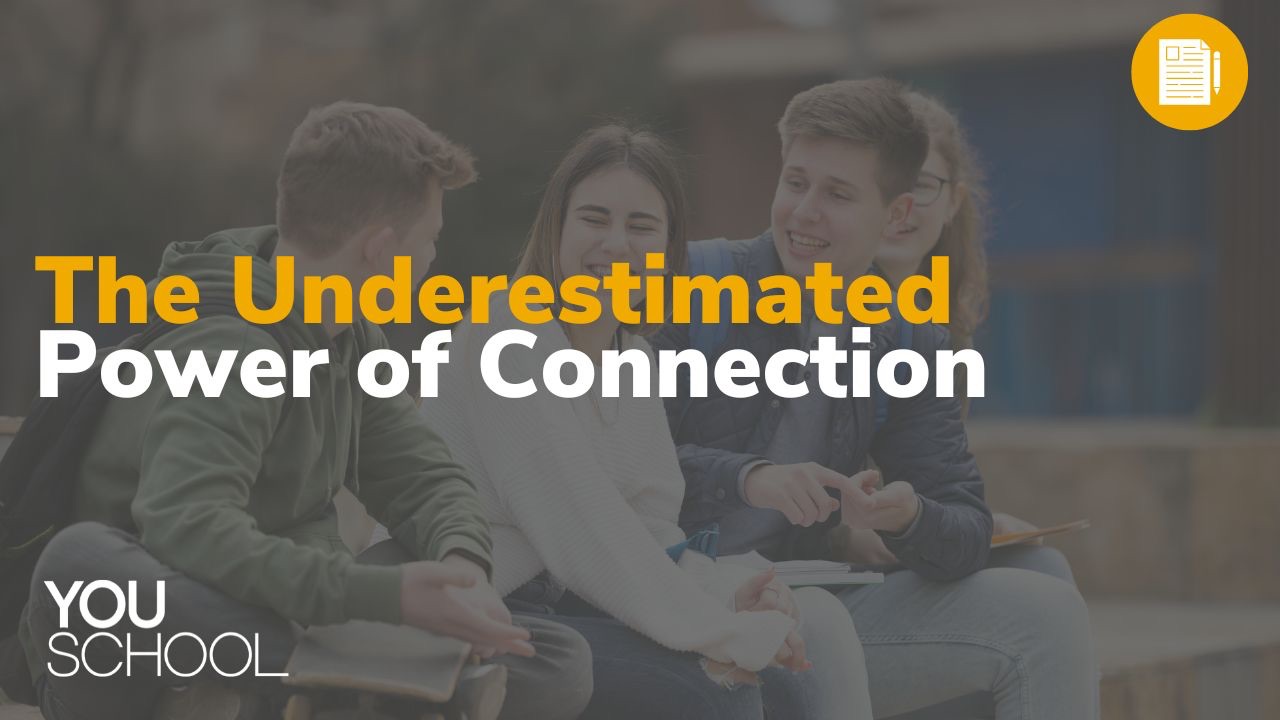The Underestimated Power of Connection

Growing up, I was a bit of a social paradox. Super shy at school and in many social situations, I wanted to spend every waking moment playing with friends. It’s easy for me to remember many moments playing in my front yard, waiting and wishing for friends to come home and feeling desperate for connection.
In recent years I’ve heard about ambiverts, the people who sit in the middle of the spectrum between extroverts and introverts. Or, in another phrase, “social introverts.” They’re the ones who recharge by being alone yet love to spend time with people, especially when it involves thoughtful conversation and smaller groups. That’s me and likely how you’d describe yourself, too. Regardless of where you sit on the spectrum, though, what isn’t disputed is the need for connection; it’s more a nuanced perspective on your preference for achieving it.
Everyone realized through the early weeks of the Covid shutdown how vital connection is to our collective and individual lives. Now, over three years later, we’re seeing the drastic impact prolonged isolation has had on people all over the world. It’s even grabbed the attention of the Surgeon General, with the recent attention-grabbing headline: New Surgeon General Advisory Raises Alarm about the Devastating Impact of the Epidemic of Loneliness and Isolation in the United States.
The author Johann Hari wrote a fascinating and relevant book a few years before the pandemic called Lost Connections: Uncovering the Real Causes of Depression—and the Unexpected Solutions. In it, Hari cites a seminal research study performed by John Cacioppo, who’s considered the grandfather of loneliness (ok, that’s what I call him, and here’s a summary of a lot of his findings in case you’re a nerd like me). Cacioppo tasked one hundred random strangers to track their heart rate and cortisol levels in their saliva with test tubes, heart rate monitors nine times throughout the day, and their current feelings of loneliness. As Hari summarizes,
“Feeling lonely, it turned out, caused your cortisol levels to absolutely soar—as much as some of the most disturbing things that can ever happen to you. Becoming acutely lonely, the experiment found, was as stressful as experiencing a physical attack.”
Feeling disconnected and lonely is terrible on every level. To put it in context, adolescents are particularly interested in peer connection. Developmentally, they’re yearning to find acceptance and belonging, which are crucial survival mechanisms that are a top priority for them. They need to connect with others at the same level that humans need water for hydration and food for sustenance. Connection is not a nice to have; it’s a prerequisite for survival.
I wonder if we somehow overlook how important it is for teenagers to connect with each other. Feeling lonely is one of the most shared and understood human experiences, especially in the realm of suffering. No one escapes it. And yet, we probably don’t talk about it enough. We don’t understand (yet) how damaging social media is to a young person’s developmental requirements. We know it’s bad; we don’t know how bad it is.
I was in the car on the way somewhere with my son, who asked me who I thought my best friend was. As he mostly already knew, I mentioned that I’m incredibly fortunate to have multiple “best friends”. He knows Caleb, Charlie, David, Nic, Darrell, and John. He didn’t know or hadn’t realized, though, that he was only one of those friends I have kept since I was little, and even then, we met when we were fourteen. All the other ones I met in college or later. I told him how often I felt lonely during my teenage years and into the first year of college. Perhaps that was a little perspective for him as he finishes up half of his high school years in a couple of weeks.
What I know for sure is this: he longs for connection. Acceptance. Belonging. Doing life with people he can count on. Mattering to others. He won’t thrive without it.
For further review, check out John Cacioppo’s TEDx Talk, The Lethality of Loneliness. Warning: it will disturb you to your core.
P.S. What if there was a way to get the best resources to impact the kids in your life—delivered to you at the right time?
Check out our memberships for parents and educators.

